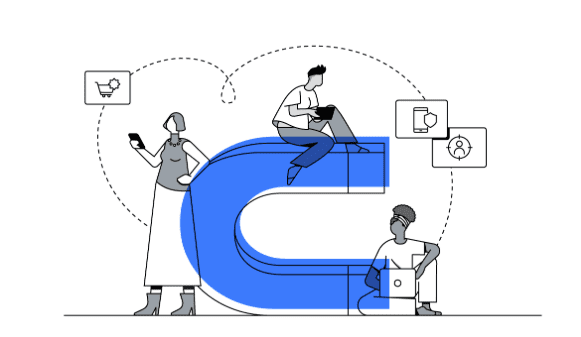Privacy is top of mind for everyone today. Consumers worry about sharing their personal information and how that information may be used, while marketers worry about how to navigate privacy changes and serve their customers.
Consumers tend to be most willing to share information that they don’t view as invasive and identifying.
But what marketers and customers share is a desired endpoint. New research from a study conducted by Boston Consulting Group and Google shows that customers and marketers are more concerned about privacy than ever before. What at first glance seems like balancing a tightrope of sensitive and seemingly conflicting needs is actually a shared desire for more relevant experiences that do not come at the expense of privacy. As marketer and customer needs align, investing in privacy today means being ready for what’s next.
Customers and marketers, united in their goals
Consumers have increasingly high expectations when it comes to digital advertising. Our research found that not only do 65% have negative experiences when ads are not relevant, but a whopping 74% of customers only want ads that are relevant.1 Still, they have concerns about how information about them is used. Specifically, three things matter to them:
- What information is collected (for example, gender, email, browsing behavior)
- How it is collected (for example, is something offered in exchange? Is the incentive clear?)
- Why it is collected (for example, how will it be used?)
But when it comes to sharing, they tend to be most willing to share information that they don’t view as invasive and identifying, such as their gender, postal code, age, interests, and previous purchases.
Marketers understand how customer-centric, data-driven marketing unlocks significant gains across business objectives.
While nearly 1 in 3 customers are willing to share their email for no incentive, with the right incentive, such as a discount or a free sample, this willingness increases threefold, leading 90% of customers to willingly share their email address.
People’s desire for relevant and enjoyable experiences is real, but brand trust matters even more. When consumers trust a brand, they are about twice as willing to share their personal information. Equally, a brand’s perceived bad data hygiene makes a customer 2X less likely to share their email address. This is even more important when attracting new customers, as 29% start from a place of mistrust of all companies across any industry to protect their personal information and privacy online, and 64% mistrust companies in at least one industry.2
And while almost 60% of customers believe that companies are selling their data, our research found that very few brands do that.3 Marketers understand the value of data and the trust their customers place in them — and how customer-centric, data-driven marketing unlocks significant gains across business objectives.




